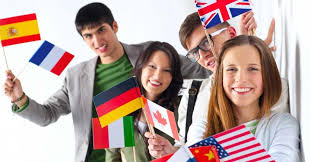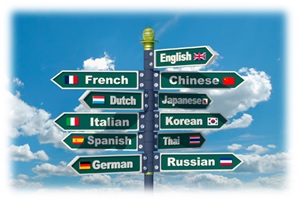
ERASMUS PLUS. Vocational Training (KA1, KA2).
Erasmus Plus wants to improve the quality of vocational training in Europe, providing students, teachers and professors who teach basic vocational training and vocational training cycles of medium grade, mobility opportunities for learning to conduct studies and practices in abroad. In addition, vocational training institutions help to create strategic partnerships with other organizations and companies and to establish strong relationships with the business world. In General, it will help to improve their job opportunities and personal skills and, thus, to strengthen the competitiveness of the European economy.

What is the opportunity?
Vocational training opportunities for students, trainees and apprentices to do internships abroad to increase employability and improve their job expectations, easing the transition from education and training to the market of labour, training in:
- Companies or other entities (e.g., Governments or NGOs) to acquire work experience.
- Vocational training Institutions with practical learning periods in companies.
Opportunities for teachers and non-teaching staff professional development activities in order to improve their skills, increase their ability to modernize their institutions and expand their knowledge of practices, policies and systems:
- Training (in the form of an stage in a company or in a training center).
- Observation of professional activities, job-shadowing (observation in a company or in a training center).
- Teaching (teaching in a vocational training center).
Cooperation between institutions through strategic partnerships between institutions in different countries and even sectors, at local, regional, national and European level, with the aim of improving this area and achieve a quality education that meets national and European labour markets ‘ expectations, creating a more modern, improved capacity to work internationally and most innovative methods to achieve these strategic groups through, among other possibilities:
- Exchange of best practices and innovative ideas.
- Application of the European credit system for vocational education and training (ECVET) and the European quality assurance of vocational education and training (EQAVET).
- Creation and application of new teaching materials and pedagogical methods for vocational training.
- Cooperation between vocational training centers and business communities.
- Cooperation between different sectors to share knowledge.
Cooperation with companies through strategic partnerships to:
- Develop and implement learning plans based on the needs of the labour market.
- Encourage the sharing of results aimed at policy makers, companies and consultants dedicated to vocational training.

ERASMUS PLUS Higher Education (KA103, KA107, KA2)
Erasmus + aims at modernising and improving higher education in Europe and around the world.
Offers multiple opportunities for students of Higher vocational Degree, college students, graduate students, teachers and institutions around the world.
Help students and staff of educational institutions to improve their skills and their job prospects.
Universities and companies can exchange best practices through partnerships for knowledge. Higher education institutions of the programme countries can collaborate with those of neighbouring countries, the Balkan countries outside the EU, Asia, Africa and Latin America to develop their educational systems.

What is the opportunity?
Opportunities for learning mobility abroad for students:
- Students must be enrolled in a higher education institution and enrolled in studies leading to a recognized diploma or other recognized qualification of higher level (up to Ph.d. included).
- Studies, including studies of the Master, under the interinstitutional agreements between the sending and receiving institutions, which must be in possession of higher education Erasmus (ECHE).
- Interested students must submit their application to the international relations office or the Erasmus Office plus of their institution of origin, which will inform you about the possibilities to study abroad and how to request and obtain a scholarship Erasmus +.
- Stage in public or private organizations active in the labour market.
- Interested students must submit their application to the International Department or to the Erasmus Office plus of their institution of origin, which will inform you about the possibilities of internship abroad and how to request and obtain an scholarship Erasmus+.
- Erasmus + Loans to achieve a Master’s degree.
- Higher education students who have been admitted to make a complete Master’s degree program abroad en el Erasmus Plus program can apply for a loan to cover part of the costs.
Opportunities for teachers and non-teaching staff professional development activities:
- Ability to teach teaching staff of higher educationinstitutions and staff of invited companies, as well astraining opportunities for teaching and non-teaching staff ofhigher education institutions.
- In the case of teaching activities between higher educationinstitutions in the programme countries, both institutionsmust be in possession of the Erasmus Higher EducationCharter (ECHE) and have signed an interinstitutional agreement.
- Assistance to seminars organized by companies.
- Stage in public or private organisations active in the labour market.
Cooperation between the institutions:
Strategic partnerships
- Provide any type of institution linked to higher education the opportunity to work together to develop innovative intellectual products that involve an improvement of higher education systems and structures.
- Are transnational and involve at least three organisations from three different countries in the program.
Joint Masters programmes.
- A master’s degree in international studies programme Erasmus Mundus is a high-level integrated. The program must include a compulsory period of study in at least two different programme countries and, if it is successfully completed, must lead to a double degree or a degree.
Cooperation with companies:
Partnering for knowledge.
- The contribution of higher education to growth and employment and its international appeal can be enhanced through linkages between education, research and innovation.
Cooperation outside the EU:
Higher education institutions in neighbouring countries, non-EU Balkan countries, to Asia, Africa and Latin America, may participate in the capacity development projects created and maintained by a consortium of higher education institutions top of the programme countries. Erasmus +.
Can be:
- Joint projects for institutions of the associated countries to establish, modernise and disseminate new curricula, teaching methods or materials and improve their quality assurance and governance.
- Structural Projects aimed at the development and reform of higher education systems and institutions in partner countries; to enhance its quality and relevance; promote regional cooperation and enhance its convergence with international advances in higher education.
- On the other hand, there are also opportunities for international mobility to get academic credit for students and staff of higher education between countries and program partners.
Jean Monnet Activities
- Activities (modules, university professorship and centres of excellence) Jean Monnet promotes the teaching and research, networking projects, conferences and publications on European studies.
Who can participate?
The following organizations and people from programme countries can participate in the field of higher education:
- Educational institutions.
- Private companies.
- Teaching and non-teaching staff.
- Students.
